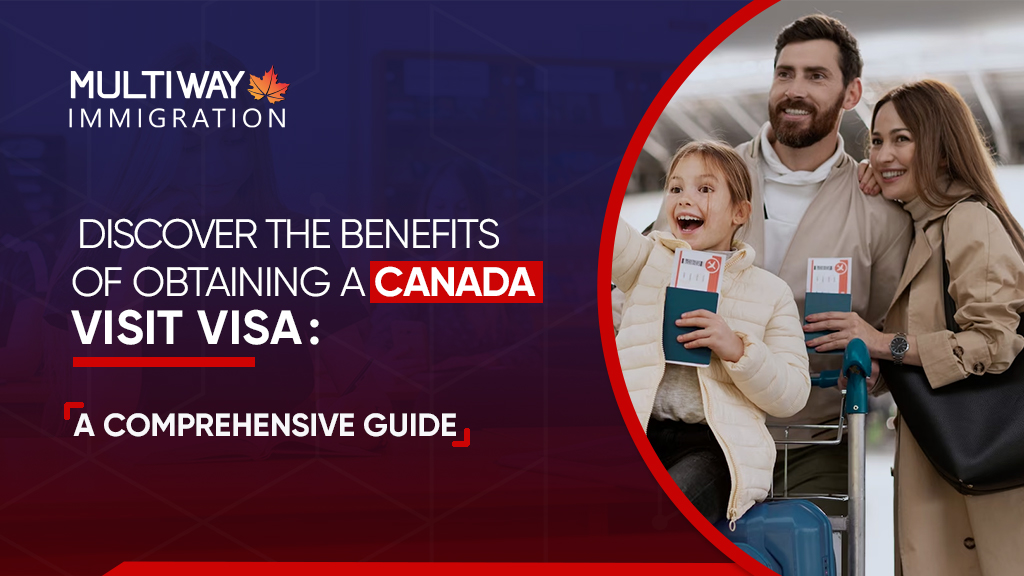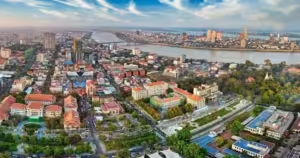Visitor Visa for Canada A Comprehensive Guide known for its

Canada, known for its stunning landscapes, vibrant cities, and rich cultural diversity, is a top destination for travelers worldwide. Whether you’re planning to visit family, attend a business meeting, or explore the country’s natural beauty, obtaining a visitor visa is an essential step. This guide provides detailed information on the types of visitor visas, the application process, required documents, and tips for a successful application.
Types of Visitor Visas for Canada
Temporary Resident Visa (TRV)
The Temporary Resident Visa (TRV), commonly known as a visitor visa, is required for individuals from visa-required countries who wish to enter Canada temporarily. This visa is suitable for tourists, business visitors, and those visiting family or friends. Visitor Visa for Canada The TRV can be issued as either a single-entry or multiple-entry visa.
Single-Entry Visa: Allows you to enter Canada once. After leaving, you will need a new visa to re-enter.
Multiple-Entry Visa: Allows you to enter and exit Canada multiple times during the visa’s validity period, up to 10 years or one month before the passport expires.
Electronic Travel Authorization (eTA)
Citizens from visa-exempt countries need an Electronic Travel Authorization (eTA) to fly to or transit through Canada. The eTA is electronically linked to the traveler’s passport and is valid for up to five years or until the passport expires, whichever comes first. The eTA allows for multiple short visits to Canada for tourism, business, or transit.
Application Process for a Visitor Visa
Online Application
Create an Account: Visit the official Immigration, Refugees, and Citizenship Canada (IRCC) website and create an online account.
Complete the Application Form: Fill out the visitor visa application form (IMM 5257) online. Ensure all information is accurate and complete.
Upload Required Documents: Scan and upload the necessary documents, including your passport, photographs, proof of financial support, and travel itinerary.
Pay the Visa Fee: Pay the visa application fee using a credit or debit card. The fee for a TRV is approximately CAD 100.
Submit the Application: Review your application and submit it online. You will receive a confirmation email with a tracking number.
Paper Application
Obtain the Application Package: Download the visitor visa application package from the IRCC website.
Complete the Application Form: Fill out the paper version of the application form (IMM 5257).
Gather Required Documents: Collect all necessary documents, including your passport, photographs, proof of financial support, and travel itinerary.
Pay the Visa Fee: Pay the visa application fee at a designated bank or online.
Submit the Application: Submit your completed application form and supporting documents to the nearest Visa Application Centre (VAC).
Required Documents for a Visitor Visa
Valid Passport: Your passport must be valid for at least six months beyond your intended stay in Canada.
Photographs: Two recent passport-sized photographs that meet the specific requirements.
Proof of Financial Support: Bank statements, employment letters, or proof of income to demonstrate that you can support yourself during your stay in Canada.
Travel Itinerary: Details of your planned travel, including flight bookings and accommodation reservations.
Invitation Letter: If visiting family or friends, an invitation letter from your host in Canada may be required.
Ties to Home Country: Evidence of your ties to your home country, such as employment, property, or family commitments, to prove your intention to return after your visit.
Important Tips for a Successful Visa Application
Apply Early: Start your visa application process well in advance of your planned travel dates to account for processing times.
Provide Accurate Information: Ensure all information in your application is truthful and matches your supporting documents.
Include Comprehensive Documentation: Submit all required documents to avoid delays or refusals. Urgent Visa for Canada Providing additional documents that support your application can be beneficial.
Stay Informed: Regularly check the IRCC website for updates on visa requirements and processing times.
Be Prepared for an Interview: Some applicants may be required to attend an interview at the Canadian embassy or consulate. Be ready to explain your travel plans and intentions clearly.
In conclusion, obtaining a visitor visa for Canada is a structured process that requires careful preparation and accurate documentation. By following the steps outlined in this guide and submitting a complete application, travelers can look forward to experiencing all that Canada has to offer.







